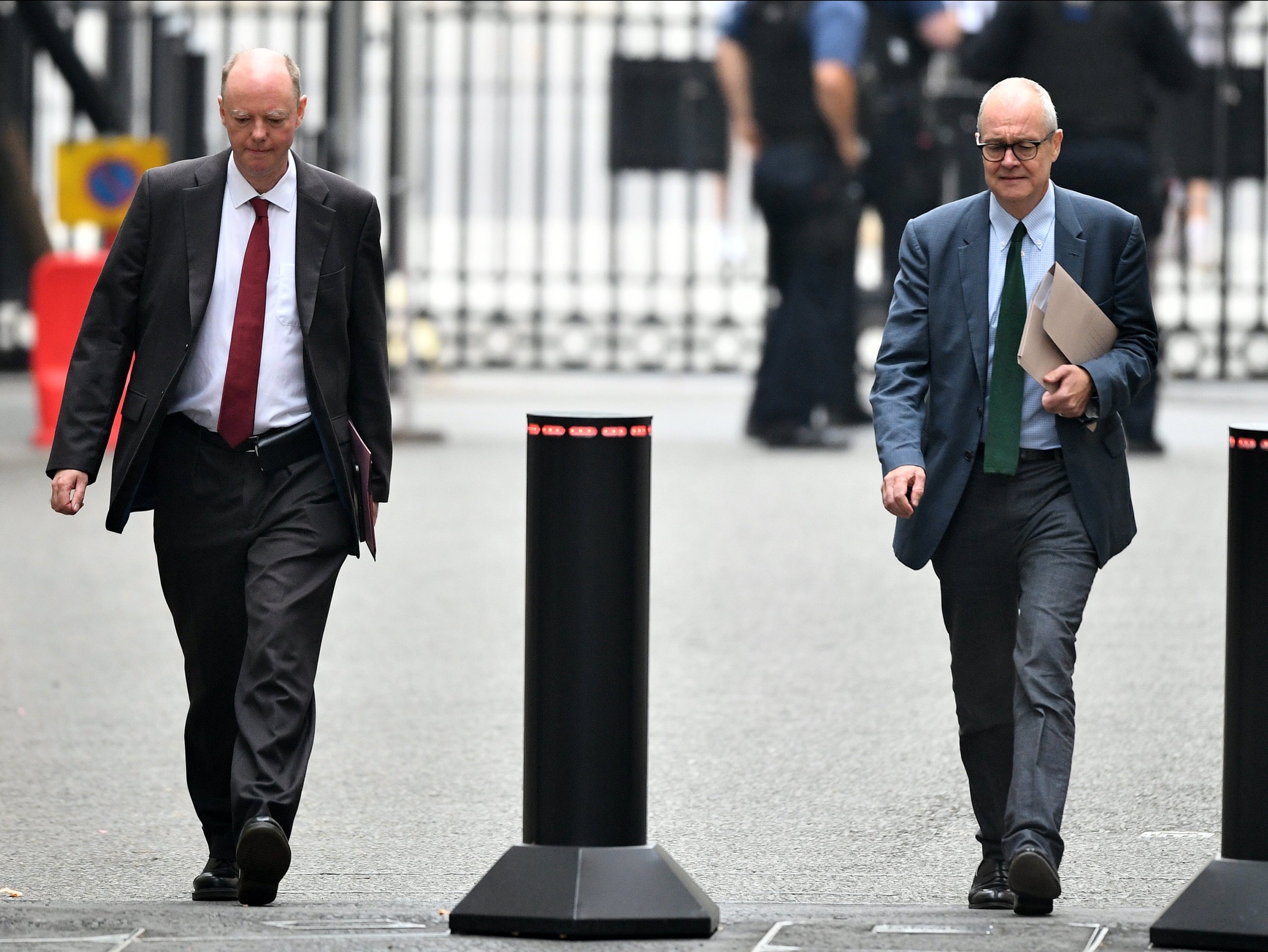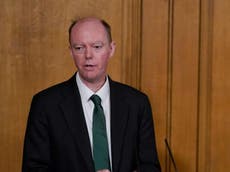Warning: coronavirus statistics can damage understanding
It was good that the Vallance and Whitty double act was back last week. We should see them every week, writes John Rentoul


There were some alarmist headlines last week – not in The Independent – about the rise in the number of coronavirus cases. Some suggested that the number of new positive daily cases reported in England was as high as it was when the epidemic was at its peak in March and April.
Fortunately, most of the coverage made clear that this was because many more tests are being carried out now: the vast majority of cases in the spring were not detected because testing capacity was so limited.
That is why it was good to have Sir Patrick Vallance, the government’s chief scientific adviser, and Chris Whitty, the chief medical officer for England, back in front of the cameras for a Downing Street briefing on Monday. They were able to set out the evidence clearly: the level of infections is still very low, compared with March and April, but is now rising again.
Professor Whitty did a good job of explaining that this rise was not simply an illusion created by carrying out more tests, because the proportion of tests that are positive was rising too. This is a figure that should be given more attention, but it is hard to find (the figures are here).
But it was a shame that the two advisers failed to take questions from journalists, because there are so many things about these numbers that are liable to be misunderstood. It was also a pity, in my view, that Sir Patrick used a graph that showed a theoretical exponential increase in the number of cases that was “not a forecast” but looked awfully like one.
It was supposed to illustrate the principle of exponential growth, if further restrictions were not imposed, but the real path of rising cases has already been much lower over the past few days, and it is too early for the effect of Tuesday’s measures to be felt.
I can understand why the daily media briefings are no longer needed, and that to bring them back would cause unnecessary alarm in itself. But weekly briefings by the scientific and medical advisers, including answering questions from journalists, would be sensible.
As we are going to have to learn to live with what we hope will be a low level of infections for the foreseeable future, it would be valuable to have frequent updates with good quality statistics and expert commentary.
Yours,
John Rentoul
Chief political commentator



Join our commenting forum
Join thought-provoking conversations, follow other Independent readers and see their replies
Comments